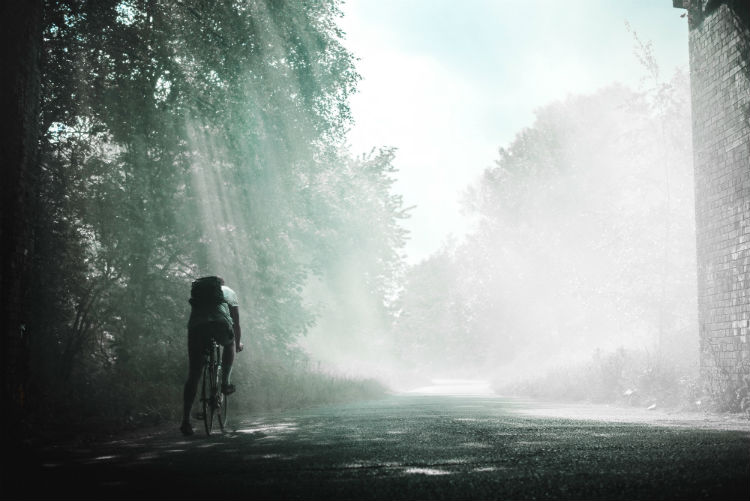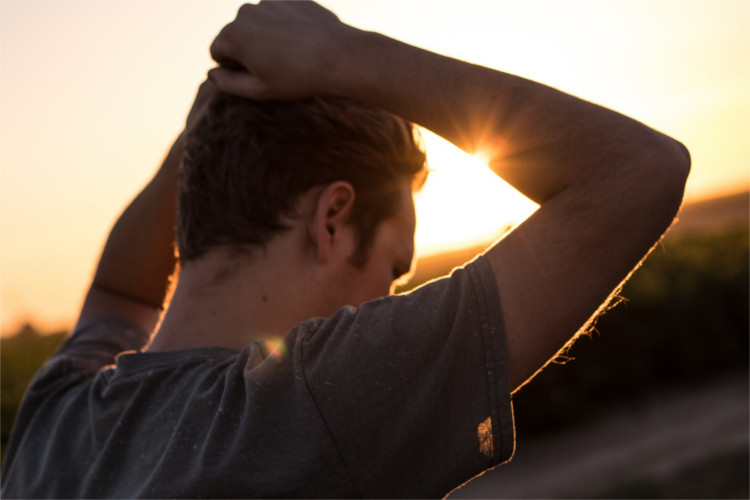Art Encounters | All I Ever Wanted (Is To Feel Wanted)
I once had a conversation with a guy in a pub that I’ve thought about a lot in the last month. Years ago, sitting in Palace Bar on Dublin’s Fleet Street, I got talking to a businessman who, for some reason, told me – in detail – about the bouts of debilitating depression he suffered intermittently. I was sitting there having a pint waiting to get a bus to Galway or somewhere, and got chatting to this guy beside me eating a toasted sandwich when reading the paper. He said he often took the day off to be alone, due to intermittent bouts of bad health – he later used the word depression to describe these bouts – and that day was a false alarm; he misread the triggers he thought he knew so well. He was fortunate enough, and he knew this, to have a family business and could pass the reigns to his daughter to run things when he was inflicted with these bouts. I asked if he could explain things in a little more detail. So he did.
He was a caterer with a number of successful restaurants in the city. The pinnacle of his ‘apparent’ success was a contract to cater for a city event to welcome a famous politician to the country. This man – let’s call him Don, although this isn’t his real name – had left school at fourteen, came from the working class tenements of the Liberties, and had begun his working life washing dishes. Everything he learnt about in catering came from the school of hard knocks. He was happily married to his childhood sweetheart for years, had three grown up healthy children, two of whom worked in the business with him, and lived in a plush residential area of Castleknock. That he couldn’t explain why he had these bouts was the crux of the problem.
Over an afternoon, during which I missed two successive buses, I listened to Don explain the nature of his affliction in relation to a catering gig he had won for this politician; the excitement, the planning, the execution, the joy in feeling everyone was focused on making this one event a success. He told me he didn’t sleep for three nights.

Everything went as well as it could, and afterwards the crew had a small party to celebrate. That night he found himself alone in a hotel room in the city, having phoned his wife to say he wasn’t himself and needed time to be alone. She understood. She had come to know the signs. He would return when he was ready; he needed space. His affliction came about from intense work; from eyeing the finishing line with a relentless concentration. When the line was crossed he would feel joy, quickly succeed by an intense emptiness. On the particular day this big catering gig had ended, and his employees had gone to the pub to celebrate Don booked himself into a hotel room, to sit beside a locked door surrounded by newspapers. Three days later the darkness passed. But the cycle would begin again, anew, afresh; always.
When I asked about what he had done to deal with this cycle, given how much it was impacting the daily functioning of his business and his family life, he told me he had been to see countless doctors, had had numerous diagnoses, and had been on all sorts of drugs and cocktails of all sorts of drugs. Nothing worked. N-O-T-H-I-N-G. He had an obvious air of resignation when telling me this, an acceptance that this was indeed his lot. I tried to comfort him by saying that he could have faith in the knowledge that the cycle was short and that, after a certain period of time, he might – kind of – adjust.
My thinking was he could come to realise that he was learning about himself; that he would become accustomed to triggers. Avoid big catering gigs, for example. But how can you avoid throwing yourself into the thing you love? It made me think specifically about our nature; about avoiding what gives our life purpose?
I thought about this conversation when the book mentioned in the blurb about me below was published earlier this summer. I was expecting the book to come out in August but ended up receiving advance copies in the post in early July. I had worked on the book from its inception to its completed form for near to five years, and had become accustomed to living with the burden of making a book of an Idea.

In the summer following the sudden death of my father I wrote thirty thousand words, and the writing process, which would take place in the morning, became a crutch for me to lean on. It was a difficult time, and writing the book (and these articles a nice divergence of sorts) became a solace to me. When I submitted the final version of the manuscript to the publishers in May this year I felt sudden relief, a sense of deep satisfaction, but within a week this satisfaction turned to something else: purposelessness.
As the summer dawned, and then the really hot weather arrived, I was consumed by a gnawing feeling of having no purpose; consumed to the extent that when the book did arrive in the post, I celebrated more out of duty than feeling I really wanted to. I struggled to recognise the product I had in my hand as my own.
As the weeks passed and this feeling intensified, I began to think back to the conversation with ‘Don’ again. I wondered if I could take something from the conversation to help my predicament. Could a conversation with a stranger teach me something?
My main problem was a lack of energy. I wasn’t necessarily lacking in energy to do certain things. What I was experiencing was a mental fatigue: my imagination completely blunted. When I walked in the forest with my dog Oscar, that place I harvest ideas, I just wanted to get to the end; I didn’t enjoy the process. When running or cycling, the space to think and imagine that usually fuels my interest in these activities in the first place, was defined by a similar lack of purpose. The space where thoughts and ideas are unleashed became a lonely place; inhabited only by me.

Then two things happened. I went to the sea, firstly in the North of Sweden and then to Enniscrone in Co. Sligo. Sometime during all of this I reread an essay and then a poem by the British poet and feminist philosopher, Denise Riley. The essay is called ‘Time Lived without its Flow’ while the poem is titled ‘Catastrophic Thinking’ from the book of poetry that accompanied the essay, titled Say Something Back.
I was so taken with Riley’s essay, I was thrilled to come across the accompanying book of poetry in Dublin’s Hodgis and Figgis on a Saturday when I was to Dublin for the hurling match between Clare and Galway in Croke Park. Over the next few weeks I’d make my way steadily through this mesmerising book of poetry and dwell upon, in particular the concluding lines from the poem ‘Catastrophic Thinking.’
I was drawn to this particular poem because of its title. Catastrophic thinking is a term used in cognitive therapy to account for a predisposition to think the worst-case scenario. Those who think catastrophically assume the worst in a crisis situation. For some people the glass is half empty, for others it is half full, but for the catastrophic thinker – and I identify as one – the drink is probably spiked, so that whatever way we look upon the glass it’ll probably end up sending us to hospital to have our stomach pumped. To think catastrophically is to have, as a default position, the worst possible outcome, the worst potential scenario in mind: doomsday is just around the corner.
Riley’s adult son died suddenly in Spain. In her attempt to find meaning for this event she was struck by the lack of research into mothers who outlive their offspring. Riley was struck by the relative silence surrounding circumstances one would expect to be relatively common. Hence she was taken to write about her experience, both in prose form, the essay, and in poetic form, in the book titled Say Something Back. The poem ‘Catastrophic Thinking,’ which can be read as dealing with this issue, affected me at a time when my thoughts edged towards catastrophic. And the final two lines stuck in my craw:
darkness absorbs any mind,
once it starts calling itself ‘unwanted’
Riley places high commas, perhaps lovingly, around unwanted, altering the condition of being as opposed to thinking we are unwanted. To call oneself unwanted is not to be unwanted. The commas are indicative of the poetic importance of subtlety. When we come to call ourselves unwanted we are making a claim that cannot be substantiated as fact. I can’t account for why I mulled over this couplet for near on two weeks, or why, as I mulled over what the couplet means my mood began to lift. I have no real idea. I just started to feel more motivated: the future no longer seemed burdensome.
My initial reading of the two lines – read as a statement of sorts – is that they simplify brilliantly the relative complexity of many emotional conundrums; that, at a time when machines have replaced human interaction, and all our communication takes place through screens of some sort or other, human beings can feel unneeded. And when you lack the strength to bat away the catastrophic thoughts that accompany this feeling, you can call yourself ‘unwanted.’ I thought back to the conversation with Don and thought of my own book situation.
Of course, I’m proud of the book. But I began to think, or began to feel as if the book had been saying ‘I don’t need you, we’re done.’ Maybe a part of me, so attached to this book, felt abandoned when it came out and took on its own life; when it no longer needed me to fix it up in anyway. When I should have felt fulfilled by the book coming out I felt unneeded, perhaps even unwanted. A friend of mine called it a variation of baby blues; postnatal depression.

Don told me he felt a sense of purposelessness when big catering jobs ended. He was no longer absorbed: dinners that he helped serve to such applause had come and gone in the world. His mind darkened, his purpose in life became unclear; he felt ‘unwanted.’ Like me, his energy would drop; he’d feel exhaustion. This may well be, to many extents, the mind’s way of saying ‘thanks for keeping me so preoccupied in the moment, now what?’
As I was mulling over my own recollection of the conversation with Don, and then the lines of Riley’s poem, I was also trying to think of the impact an adult son’s death might have on a mother. I first read the poem ‘Catastrophic Thinking’ as concerning the impact her son’s death had upon Riley emotionally? But then I began to think the poem – and in particular the end – also speaks of that which is universal: the human need to feel ‘wanted.’
At a time when we are surrounded by advertisements, telling us what we should want, it is more and more imperative to explore the conditions that make us feel wanted. Maybe the lesson learnt from my summer slump is to recognise again the benefit of speaking to strangers (in pubs), the benefits of turning to literature for sustenance. But maybe it’s also the importance I attach to feeling wanted. Maybe the book I wrote doesn’t need me anymore. It now has to make its own way in the world. I’ve got to adjust and find another way to feel that this world wants my involvement in it.
I’ve been sitting in my hotel room with newspapers all around me. Now it’s time to get up and go home.
